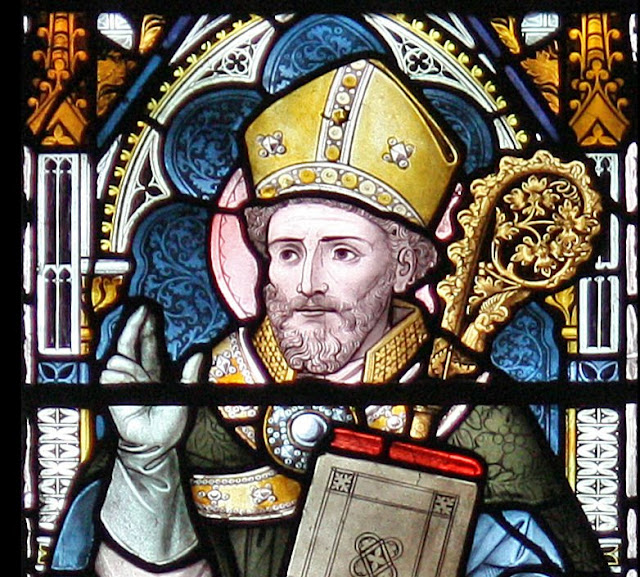The exam question of the 2013 Bac ES in philosophy offered a choice of a text by Anselm to comment on. Find all the Other
subjects of the French baccalauréat of 2013.

Anselm
Let us now take an example in which appear a right will, that is to say a just will, the freedom of choice and the choice itself; and also the way in which the right will, tempted to abandon rectitude, preserves it by a free choice. Someone wants from the bottom of his heart to serve the truth because he understands that it is right to love the truth. This person certainly has the right will and the rightness of the will; but the will is one thing, the rightness that makes it right is another. Another person comes along and threatens him with death if he does not lie.
Let us now see the choice that presents itself of sacrificing life for the rectitude of the will or rectitude for life. This choice, which can also be called
judgment, is free, since the reason that perceives rectitude teaches that this rectitude must be observed for the sake of rectitude itself, that all that is
itself, that all that is claimed for its abandonment must be despised and that it is up to the will to reject and choose according to the data of the rational intelligence; it is for this purpose primarily, indeed, that the reasonable creature has been given the will and reason. That is why this choice of the will to abandon this rectitude is not subject to any necessity, although it is fought by the difficulty born of the thought of death. Although it is necessary to give up either life or rectitude, no necessity determines what is retained or given up is kept or abandoned. The will alone determines here what is kept and the force of necessity does nothing where the will alone operates of the will operates.
Anselm, on Concord (12th
century)
Correction on the extract of the French baccalauréat 2013 in ES:
This text talks about freedom.
Anselm wrote a lot about the notion of freedom, and in particular free will.
The thesis here can be understood in Anselm’s last words:’ the force of necessity does nothing where the sole choice of the will operates’. For Anselm, everyone has free will, and his choice cannot be conditioned.
This conception of freedom is the one that will be challenged, for example, by Baruch Spinoza, for whom everything happens by necessity.
He draws his demonstration from a dilemma that he imagines between lying to protect one’s life, or dying for the love of truth (“sacrificing life for the rectitude of the will or rectitude for life”).
Anselm establishes that freedom is independent of necessity; the necessity of things does not take the place where freedom takes place.
→ Correction of the philosophy French baccalauréat in 2013

